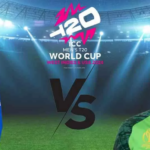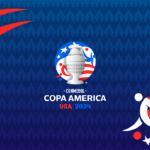The Nobel Prize is one of the most prestigious and revered awards in the world, recognizing and celebrating extraordinary contributions to humanity in the fields of Physics, Chemistry, Physiology or Medicine, Literature, Peace, and Economic Sciences. Established by the will of Alfred Nobel, a Swedish inventor, engineer, scientist, and philanthropist, these prizes have been awarded annually since 1901, honoring individuals and organizations for their exceptional efforts and groundbreaking work.
The Legacy of Alfred Nobel:
Alfred Nobel, the inventor of dynamite and a polymath with over 350 patents to his name, left behind a profound legacy that extended far beyond his scientific achievements. When he passed away in 1896, he bequeathed his fortune to the establishment of the Nobel Prizes, in a testament that reflected his desire to promote innovation, research, and peace. Nobel’s recognition of the dual potential of science, both for advancement and destruction, compelled him to dedicate his wealth to the betterment of humanity.
Categories of the Nobel Prize:
- Physics: The Nobel Prize in Physics is awarded to individuals or teams whose work has significantly advanced our understanding of the physical world. It often honors discoveries that have changed our perception of the universe, from quantum mechanics to the theory of relativity.
- Chemistry: The Nobel Prize in Chemistry acknowledges breakthroughs in the realm of chemical science, including the development of new materials, the discovery of fundamental chemical processes, and the creation of innovative technologies.
- Physiology or Medicine: This prize recognizes achievements in medical research and healthcare. It has celebrated groundbreaking discoveries, from the isolation of insulin to the development of life-saving vaccines.
- Literature: The Nobel Prize in Literature is awarded to authors, poets, and playwrights who have made exceptional contributions to the world of literature. Their works often tackle profound societal, cultural, and philosophical themes.
- Peace: The Nobel Peace Prize is given to individuals or organizations that have made significant efforts to promote peace, resolve conflicts, and advocate for human rights. Past laureates have included figures like Martin Luther King Jr., Malala Yousafzai, and organizations like the United Nations.
- Economic Sciences: Officially known as the Sveriges Riksbank Prize in Economic Sciences in Memory of Alfred Nobel, this category was established later, in 1968. It honors groundbreaking research and contributions in the field of economics, recognizing how economic theories and studies impact the world.
The Nobel Prize Ceremony:
The Nobel Prize ceremony is held annually on December 10th, the anniversary of Alfred Nobel’s death, in Stockholm, Sweden. The laureates receive a medal, a diploma, and a cash award, which varies in amount each year. The ceremony is attended by the Swedish royal family, dignitaries, and distinguished guests, and it is a moment of global significance.
The Global Impact:
The Nobel Prize has a profound and lasting impact on the world. Beyond recognizing outstanding individual and collective accomplishments, it often brings critical issues to the forefront of public consciousness. Nobel laureates often use their newfound platform to advocate for important global causes, from climate change to peace and human rights. The Nobel Peace Prize, in particular, highlights the ongoing struggles and achievements of individuals and groups working tirelessly to create a more peaceful world.
Nobel Prize laureates for 2023
The Nobel Prize laureates for 2023 have been officially revealed, and their accomplishments span across diverse fields of human endeavor:
Physiology or Medicine: Katalin Karikó and Drew Weissman have been honored for their pioneering research in nucleoside base alterations, a breakthrough that paved the way for the development of revolutionary COVID-19 mRNA vaccines.
Physics: Pierre Agostini, Ferenc Krausz, and Anne L’Huillier have been recognized for their groundbreaking experimental methods capable of generating attosecond pulses of light. These remarkable advances have opened new vistas for studying the intricate dance of electrons within matter.
Chemistry: Moungi G. Bawendi, Louis E. Brus, and Alexei I. Ekimov have received accolades for their pivotal roles in the discovery and synthesis of quantum dots, promising materials with a wide range of applications.
Literature: Jon Fosse’s eloquent prose, delving into the profound depths of human experience with lyrical beauty, has earned him this year’s Nobel Prize in Literature.
Peace: Narges Mohammadi’s indefatigable dedication to fighting for the rights and freedom of oppressed women in Iran, and her relentless advocacy for human rights, has garnered her the Nobel Peace Prize.
These prestigious accolades are bestowed annually upon individuals who have made remarkable contributions in the fields of physics, chemistry, physiology or medicine, literature, and peace. The Nobel Foundation bestows these awards during a distinguished ceremony held in Stockholm, Sweden, on December 10th, commemorating the anniversary of Alfred Nobel’s passing.
The Nobel Prizes stand as a symbol of excellence, innovation, and the boundless potential of human achievement. The 2023 laureates have not only demonstrated outstanding proficiency in their respective domains but have also made profound and lasting impacts on the world. It is particularly noteworthy to highlight the work of Katalin Karikó and Drew Weissman, whose groundbreaking mRNA vaccine development played a pivotal role in saving countless lives during the tumultuous COVID-19 pandemic. Their achievements underscore the transformative potential of science in making a positive and life-saving difference on a global scale.
Nobel Prize laureates 2022
Physics: Alain Aspect, John F. Clauser, and Anton Zeilinger received the award for their groundbreaking experiments involving entangled photons, which established the violation of Bell inequalities and laid the foundation for quantum information science.
Chemistry: Carolyn R. Bertozzi, Morten P. Meldal, and K. Barry Sharpless were honored for their pioneering work in the development of click chemistry and bioorthogonal chemistry.
Physiology or Medicine: Svante Pääbo was recognized for his remarkable contributions to our understanding of human evolution through his discoveries related to the genomes of extinct hominins.
Literature: Annie Ernaux was acknowledged for her exceptional courage and clinical insight in exploring personal origins, estrangements, and the constraints of collective memory.
Peace: Ales Bialiatski, Memorial, and the Center for Civil Liberties received the Peace Prize for their outstanding efforts in documenting war crimes, human rights violations, and the abuse of power.
These laureates have made remarkable contributions to their respective fields, leaving a lasting impact on science, chemistry, medicine, literature, and the promotion of peace.
Nobel Prize Winners 2021
Physiology or Medicine: David Julius and Ardem Patapoutian were honored for their groundbreaking contributions in the field of physiology and medicine.
Physics: Syukuro Manabe, Klaus Hasselmann, and Giorgio Parisi received the Nobel Prize in Physics for their outstanding achievements in the field of physics.
Chemistry: Benjamin List and David W.C. MacMillan were recognized for their significant contributions to the field of chemistry.
Literature: Abdulrazak Gurnah was awarded the Nobel Prize in Literature for his exceptional literary work.
Peace: Maria Ressa and Dmitry Muratov were honored for their outstanding efforts in the promotion of peace.
Economic Sciences: David Card, Joshua D. Angrist, and Guido W. Imbens received the Nobel Prize in Economic Sciences for their contributions to the field of economics.
Nobel Prize laureates 2020
Physics: The Nobel Prize in Physics for 2020 was awarded with one half to Roger Penrose “for the discovery that black hole formation is a robust prediction of the general theory of relativity,” and the other half jointly to Reinhard Genzel and Andrea Ghez “for the discovery of a supermassive compact object at the centre of our galaxy.”
Chemistry: The Nobel Prize in Chemistry for 2020 was awarded jointly to Emmanuelle Charpentier and Jennifer A. Doudna “for the development of a method for genome editing,” specifically for their work on the CRISPR-Cas9 gene-editing technology.
Physiology or Medicine: The Nobel Prize in Physiology or Medicine for 2020 was awarded jointly to Harvey J. Alter, Michael Houghton, and Charles M. Rice “for their decisive contributions to the fight against blood-borne hepatitis.” Their work led to the discovery of the hepatitis C virus.
Literature: The Nobel Prize in Literature for 2020 was awarded to the American poet Louise Glück “for her unmistakable poetic voice that with austere beauty makes individual existence universal.”
Peace: The Nobel Peace Prize for 2020 was awarded to the World Food Programme (WFP) “for its efforts to combat hunger, for its contribution to bettering conditions for peace in conflict-affected areas, and for acting as a driving force in efforts to prevent the use of hunger as a weapon of war and conflict.”
Economic Sciences: The Sveriges Riksbank Prize in Economic Sciences in Memory of Alfred Nobel, commonly referred to as the Nobel Prize in Economics, for 2020 was awarded to Paul R. Milgrom and Robert B. Wilson “for improvements to auction theory and inventions of new auction formats.”
These laureates were recognized for their outstanding contributions to their respective fields, and their work has had a profound impact on science, medicine, literature, and peace.
Nobel Prize Winners 2019
Physiology or Medicine: William G. Kaelin Jr., Sir Peter J. Ratcliffe, and Gregg L. Semenza were awarded the Nobel Prize in Physiology or Medicine for their discoveries related to how cells sense and adapt to oxygen availability, which has implications for various medical conditions, including cancer and anemia.
Physics: James Peebles received one-half of the Nobel Prize in Physics for his significant contributions to our understanding of the universe’s history and structure. Michel Mayor and Didier Queloz jointly received the other half for the discovery of an exoplanet orbiting a solar-type star.
Chemistry: John B. Goodenough, M. Stanley Whittingham, and Akira Yoshino were awarded the Nobel Prize in Chemistry for their development of lithium-ion batteries, which have revolutionized the way we store and use energy in a wide range of applications, including mobile devices and electric vehicles.
Literature: The Nobel Prize in Literature for 2019 was awarded to Peter Handke for his influential work as a writer, playwright, and essayist, with an emphasis on his exploration of the periphery and the specificity of human experience.
Peace: Abiy Ahmed Ali, the Prime Minister of Ethiopia, received the Nobel Peace Prize for his efforts in resolving the border conflict with Eritrea and for his work in fostering peace and international cooperation in the East African region.
Economic Sciences: Abhijit Banerjee, Esther Duflo, and Michael Kremer were jointly awarded the Sveriges Riksbank Prize in Economic Sciences in Memory of Alfred Nobel for their groundbreaking experimental approach to alleviating global poverty, particularly through their work on finding effective solutions to issues related to education and healthcare in developing countries.
Nobel Prize winners for 2018
Physiology or Medicine: James P. Allison and Tasuku Honjo were awarded the Nobel Prize in Physiology or Medicine for their significant contributions to the field of cancer immunotherapy. Their work led to the development of drugs that enhance the immune system’s ability to fight cancer, offering promising new treatments for patients.
Physics: Arthur Ashkin received one-half of the Nobel Prize in Physics for his groundbreaking work in optical tweezers, which allow for the manipulation of microscopic objects using laser light. The other half was jointly awarded to Gérard Mourou and Donna Strickland for their development of ultrafast laser technology, which has applications in various fields, including medicine and manufacturing.
Chemistry: Frances H. Arnold was awarded the Nobel Prize in Chemistry for her pioneering work in the field of directed evolution of enzymes, which has led to the development of new catalysts with applications in medicine and biofuels.
Literature: The Nobel Prize in Literature for 2018 was awarded to Olga Tokarczuk for her narrative imagination that explores the crossing of boundaries as a form of life.
Peace: Nadia Murad and Dr. Denis Mukwege received the Nobel Peace Prize for their efforts to end the use of sexual violence as a weapon of war and armed conflict. Nadia Murad is an advocate for victims of sexual violence, particularly from the Yazidi community, while Dr. Denis Mukwege is a physician known for his work with survivors of sexual violence in the Democratic Republic of the Congo.
Economic Sciences: William D. Nordhaus and Paul M. Romer were jointly awarded the Sveriges Riksbank Prize in Economic Sciences in Memory of Alfred Nobel for their work on integrating climate change and technological innovation into long-term economic models. William D. Nordhaus’ contributions focused on climate economics, while Paul M. Romer’s work centered on the role of technology in economic growth.
The Nobel Prize is a testament to human intellect, innovation, and the pursuit of a better world. It celebrates not only the laureates’ accomplishments but also the potential of science, literature, and peace to transcend borders, inspire generations, and bring about positive change. Alfred Nobel’s vision, as embodied in these prizes, continues to guide and inspire generations of individuals and organizations, leaving an indelible mark on the course of human history.
We will be very happy if you write on the comment ox to update the provided information.









